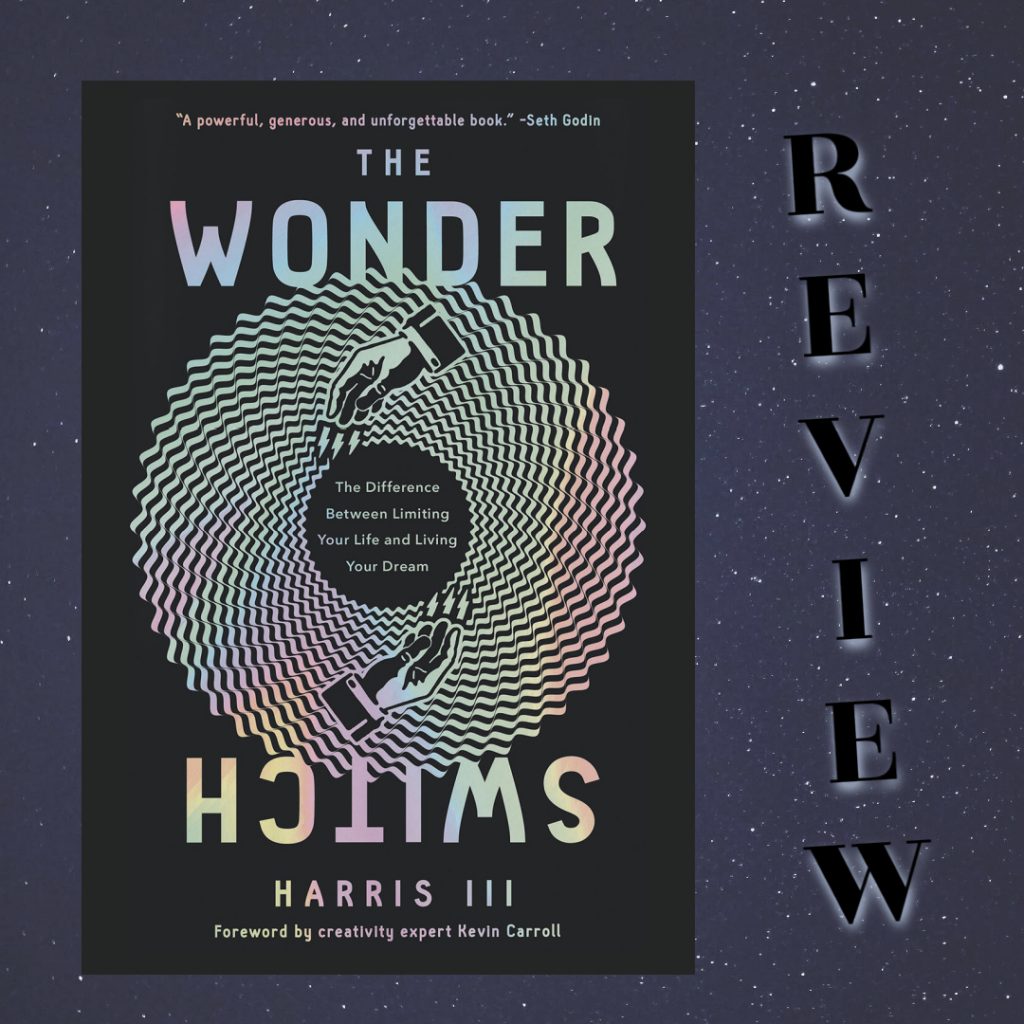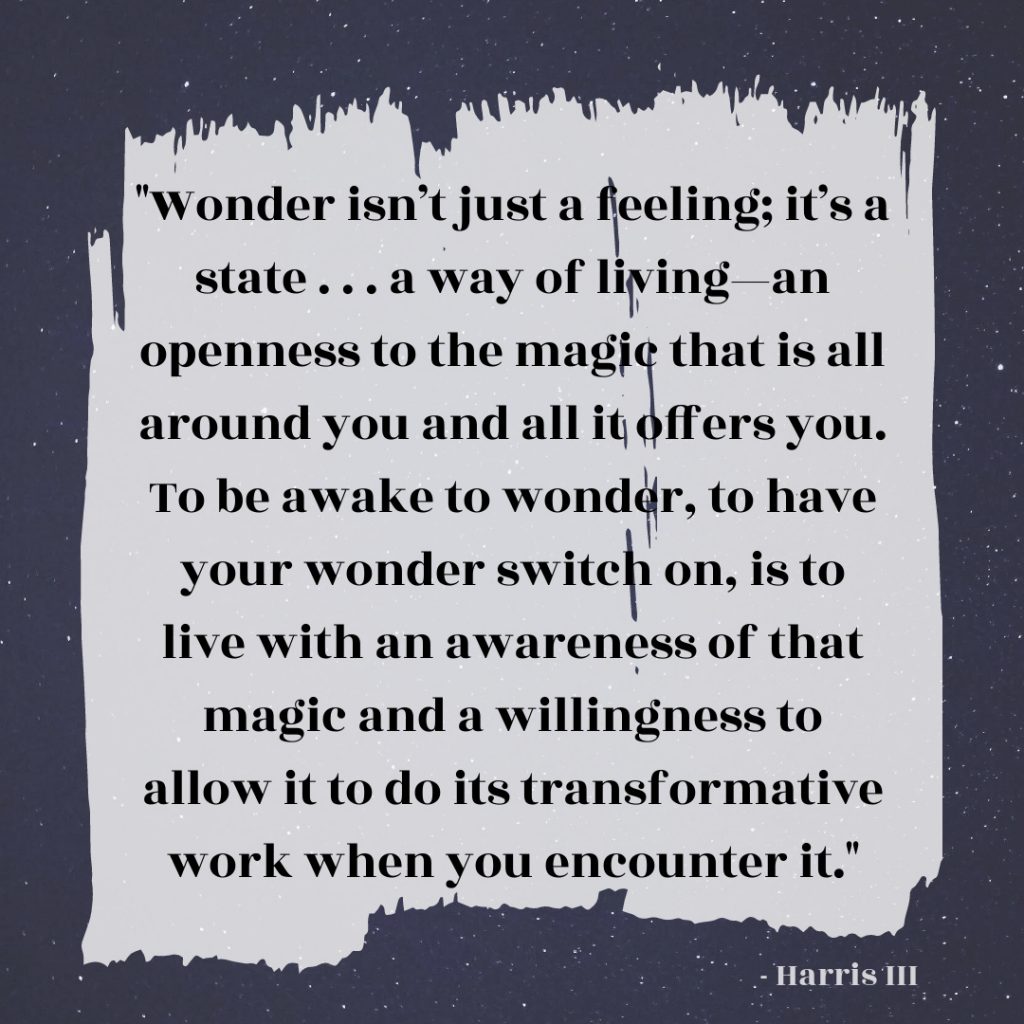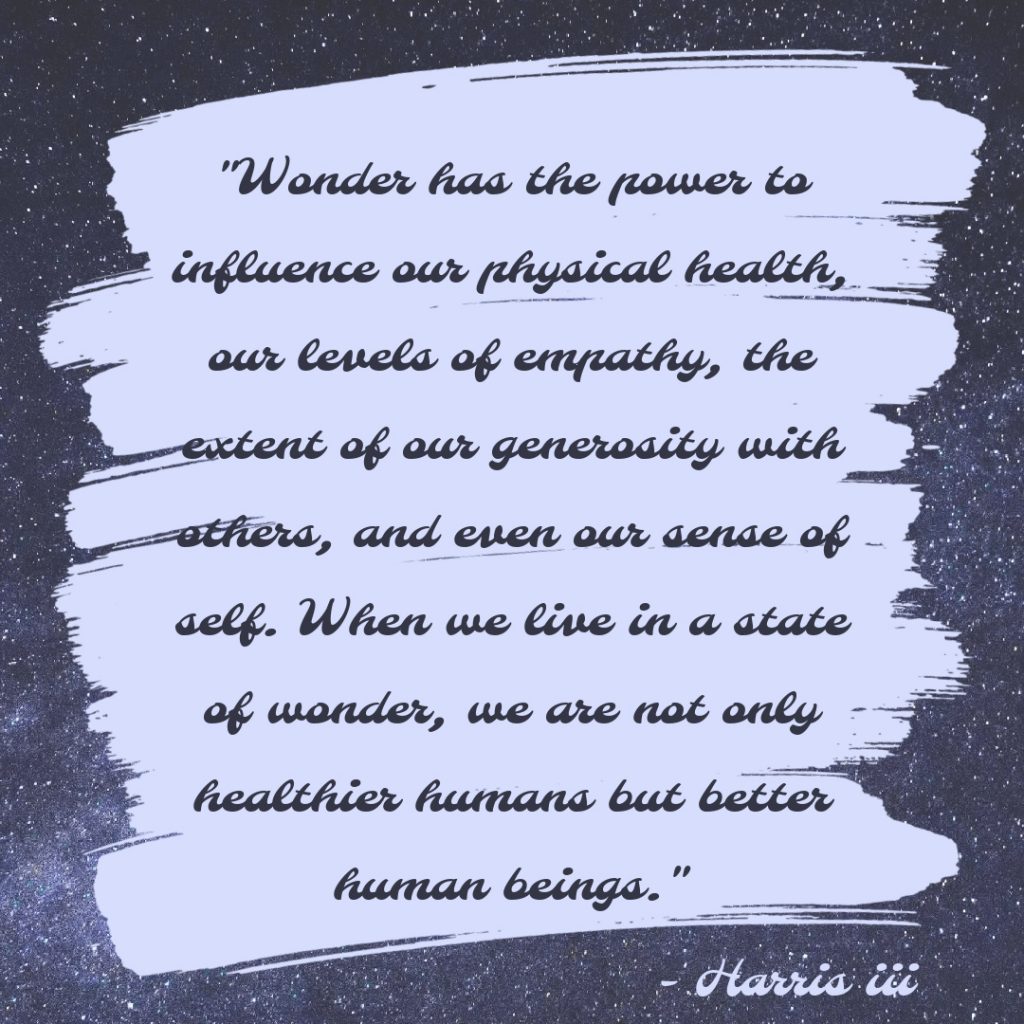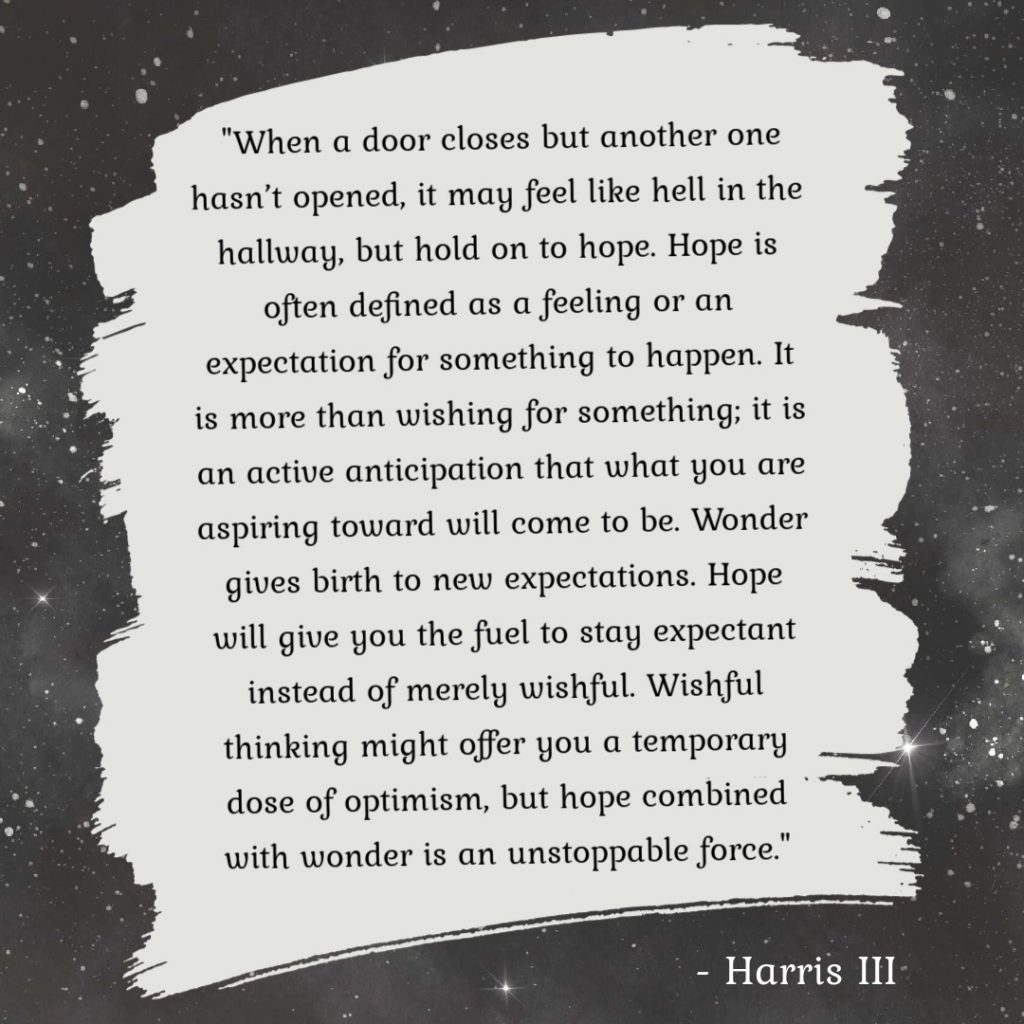My quest to learn about (and awaken to) WONDER in 2021 through a Word-related book each season led me this summer to metaphorically sit under the tutelage of someone who is well acquainted with producing magical moments that inspire wonder in others. As a professional illusionist, Harris III is known around the world for creating magic onstage. And his magical illusions might be just that—illusions; but that doesn’t make them any less magical or deserving of wonder from his audience.
After years spent manufacturing wonder for others, Harris III realized his own Wonder Switch had been turned off. His amazement at the goodness, truth, and purpose around him had vanished, crippled by trauma, external pressures, and a limiting mindset that kept him from dreaming, loving, or living life to its fullest. In The Wonder Switch, Harris unpacks the steps he took to maneuver his personal Wonder Switch back to the ON position, and he guides readers in doing the same.

The idea of seeking out wonder might seem fairly inconsequential, a nice quality to pursue when it’s convenient but certainly not crucial to our existence or even our well-being. However, Harris makes the case that living a life marked by wonder (a life he describes as one in which our innate Wonder Switch is flipped on) is a critical component of our curiosity, imagination, creativity, and capacity for belief, hope, and resilience. Wonder can be a catalyst for change, an illuminator of potential, and a pathway to connection and belonging. Possessing wonder makes us better leaders, parents, innovators, and humans. And when wonder dies, we open ourselves up to cynicism, stress, anxiety, and shame, which has a disastrous affect on our stories.
I think that most of us are familiar with the importance and power of story—both the stories we encounter through fiction and the lives of other individuals, and the stories we believe about ourselves. We are all born with our Wonder Switches set to “on” which enables us to embrace true and positive narratives about ourselves. Unfortunately, life has a way of dimming our Wonder Switches, and as our wonder is stifled, we begin to craft untrue narratives about the world and ourselves.
These stories we’ve embraced matter because they drive our thinking and behavior, which in turn play into the next stories we begin to live out. Without wonder, this cycle of stories breeding behaviors that fuel stories can quickly become toxic. Thankfully, transformation is possible; we possess the potential to envision and pursue a better, more magical story for ourselves. For this to occur, it is crucial that we allow wonder to do its work in us.

It’s common for us humans to live our entire lives writing and redefining our personal stories, giving little thought to how much of our personal narratives are actually true or how these narratives might be affecting our daily existence and future trajectories. In The Wonder Switch, Harris invites us to step back and examine our histories and the stories they have birthed. When was wonder lost within our story? Where are we settling for counterfeit versions of the lives we were meant to live? Where was wonder crushed and how can it be reclaimed? And how can this rediscovered wonder breath life into bigger dreams and wonder-laden futures?
I realize that those concepts might come across as esoteric, steeped in mysticism and very “feel-good-self-help“-y. But Harris’s explanations are easy to follow and relatable thanks to Harris’s candidness about his own trauma, insecurities, and life-altering quest to reclaim wonder for himself and his family. He provides action steps for rediscovering wonder—”the childlike state we find ourselves in when we are awake to possibility and rescued from the ordinary, granting us permission to believe in what we have yet to see”—and he makes doing so seem not only desirable but entirely possible!

When I chose Wonder as my word for 2021, I had a vague understanding of how I was hoping this might play out. I had not anticipated the ways wonder would set the stage for pivotal transformation in nearly every facet of my life. In embracing wonder, I have been living out the story-rewriting that Harris describes in this book. I personally have experienced many of the truths Harris lays out in Wonder Switch: that wonder is fuel for wisdom and curiosity, a source of inspiration and ingenuity, and a birthplace for passion, vigor, inspiration, joy, and purpose. I’ve observed the lack of wonder in myself and in our culture, and am beginning to witness how adopting a wonder mindset is one of the best decisions a person can make for one’s physical, emotional, spiritual, and interpersonal wellbeing.
One of my favorite takeaways from this book is the idea of becoming a WOW person instead of just a HOW person: in other words, allowing myself to simply be amazed at what I see rather than trying to understand, scrutinize, or control my experiences and especially God’s work within them. There is value in accepting the world as it presents itself—for all of its flaws but also all of its glory—and responding not with judgment or cynicism, but with amazement and gratitude and WONDER.

I don’t know that I would naturally associate beauty with mystery, but according to Harris, the two go hand in hand. He writes, “beautiful things contain elements of mystery, because there is always more to discover.” And the inverse is also true: mysteries are beautiful because mysteries can leave us in wonder. . . a wonder that has the potential to turn our lives for the better if we allow it. Wonder in and of itself is beautiful and mysterious, more attainable than we assume if only we are willing to flip the wonder switch. Harris III is here to help us do just that. As he concludes in his book, “Now you know most of my secrets. I guess we’re both magicians now. Use your powers wisely—they won’t just change your life; they might just change the world too.”